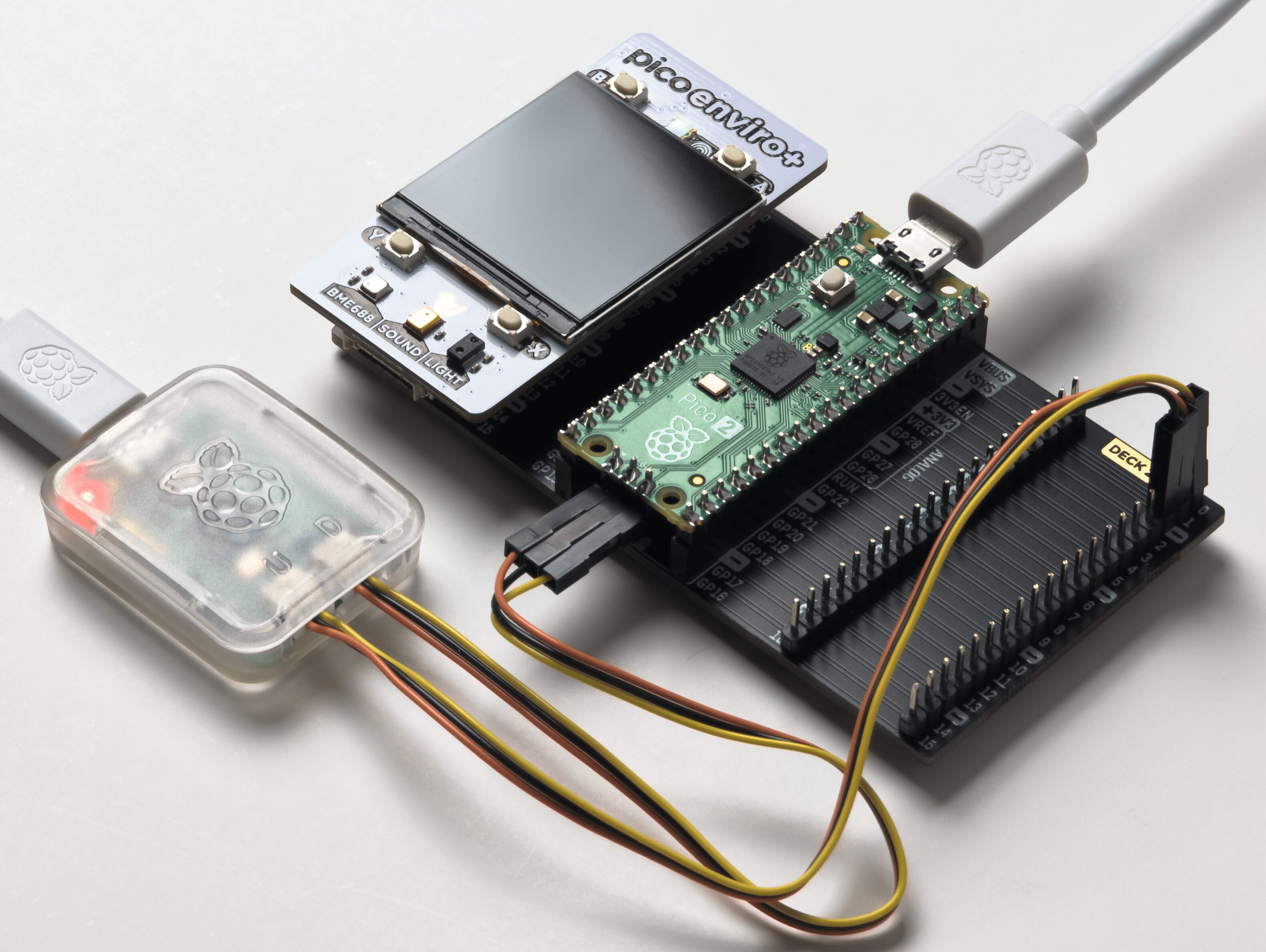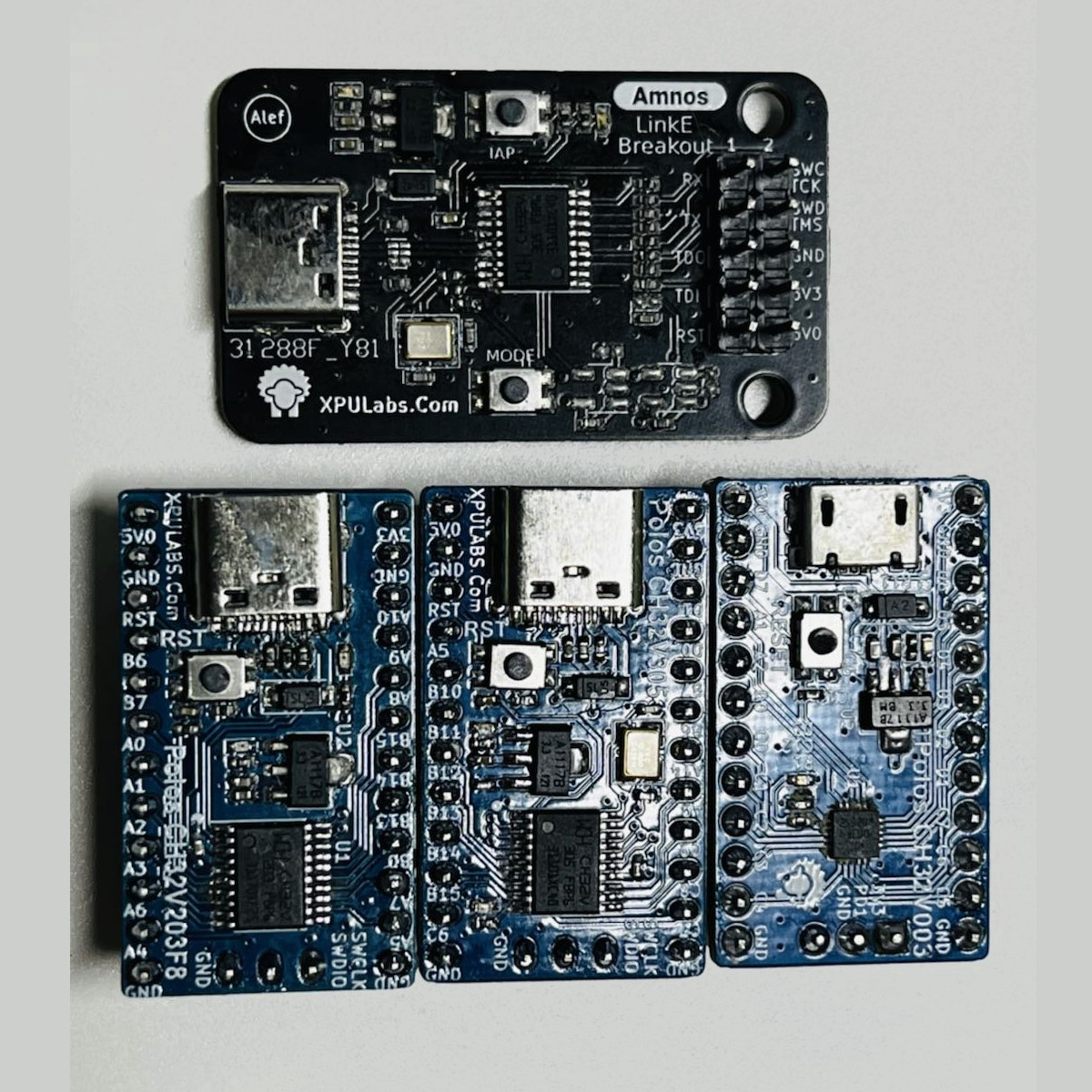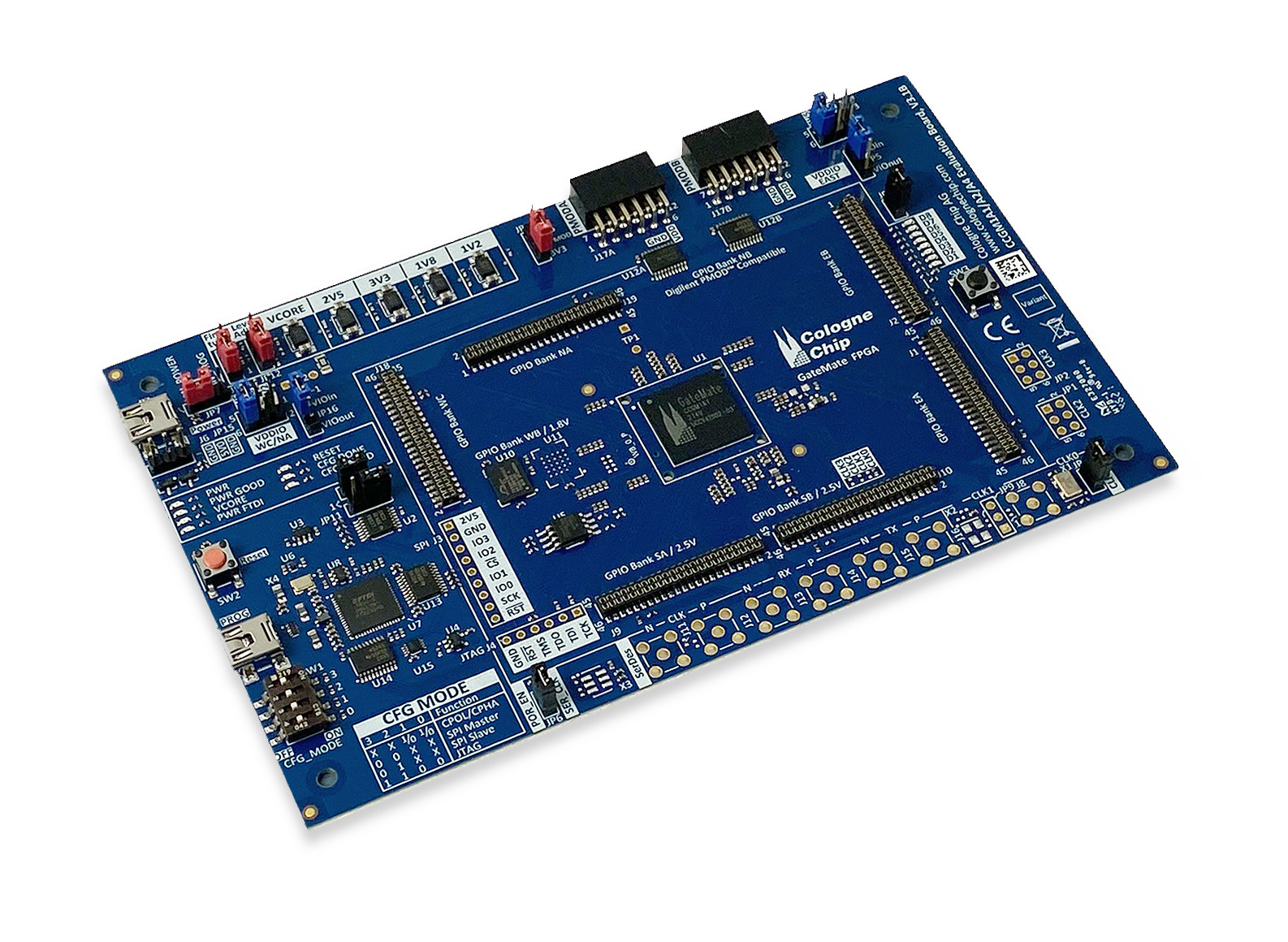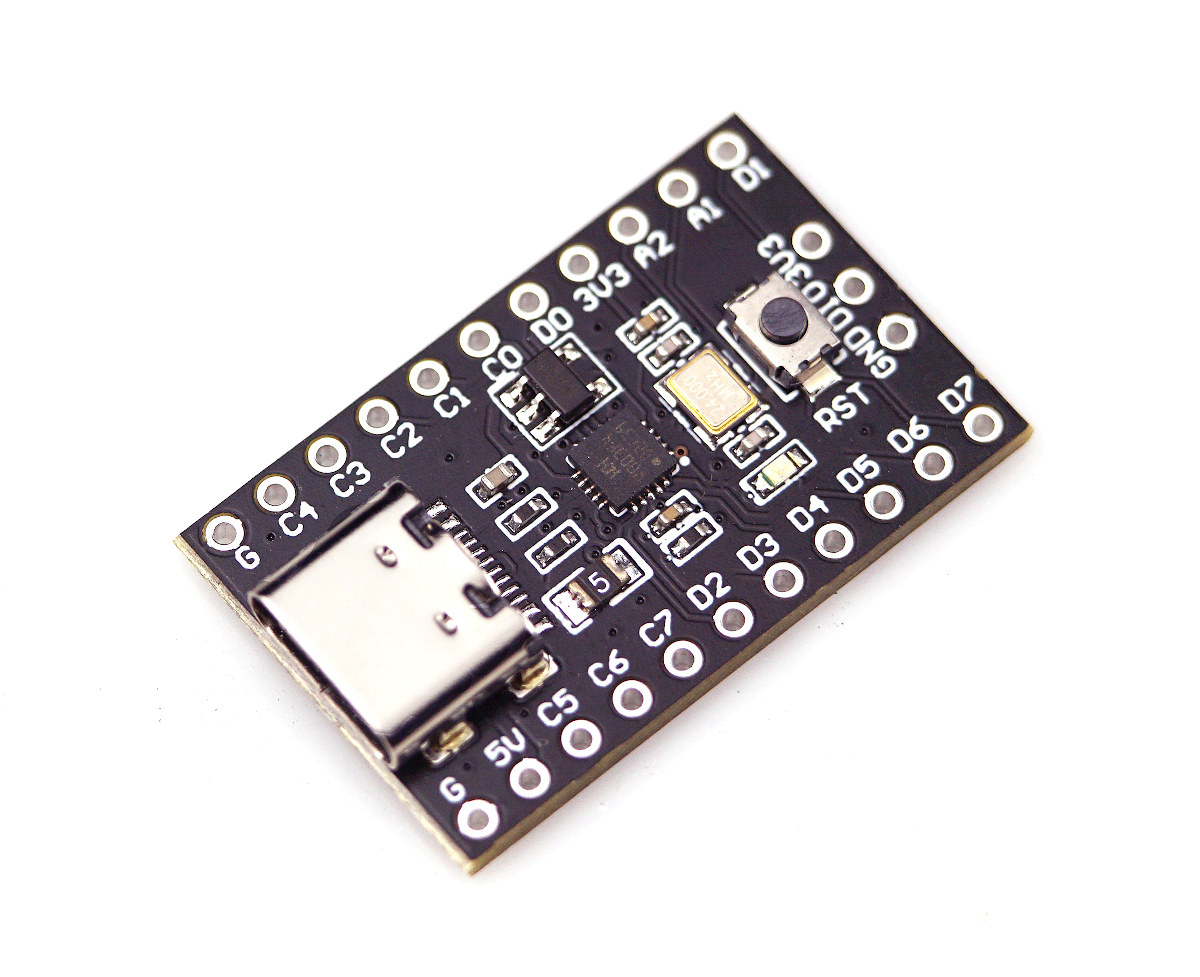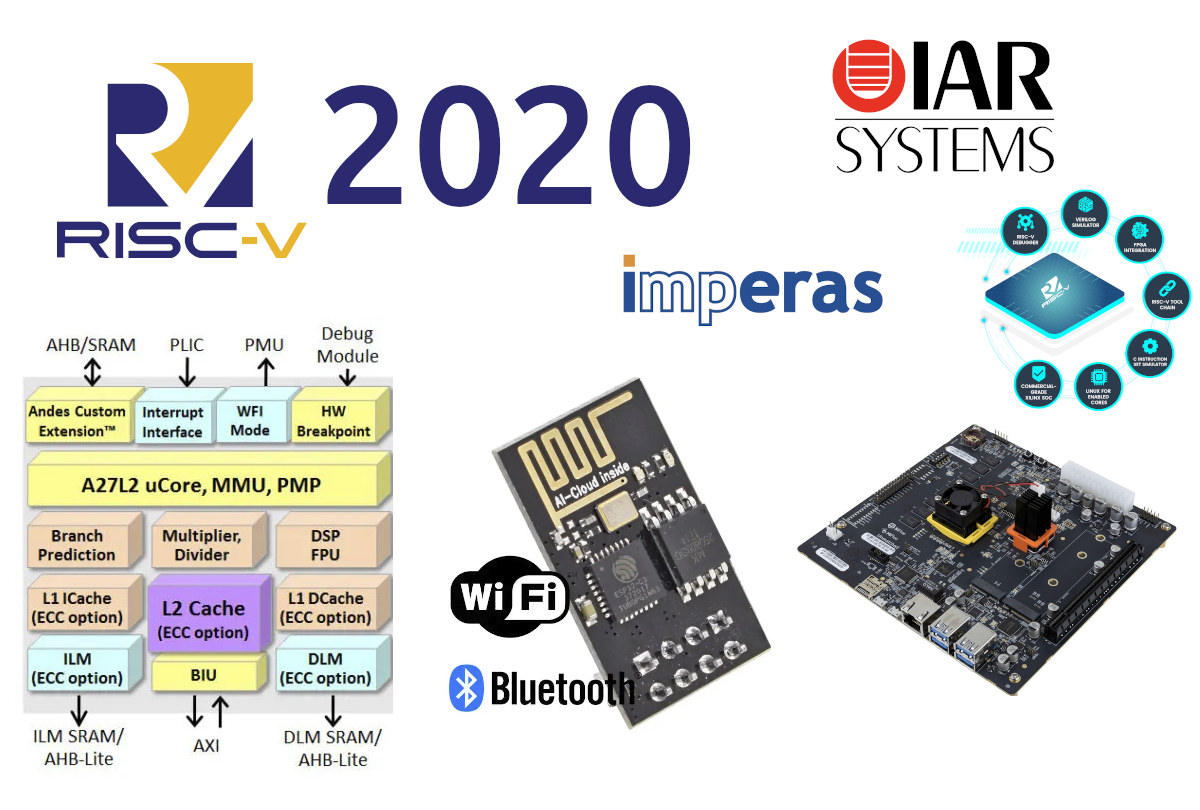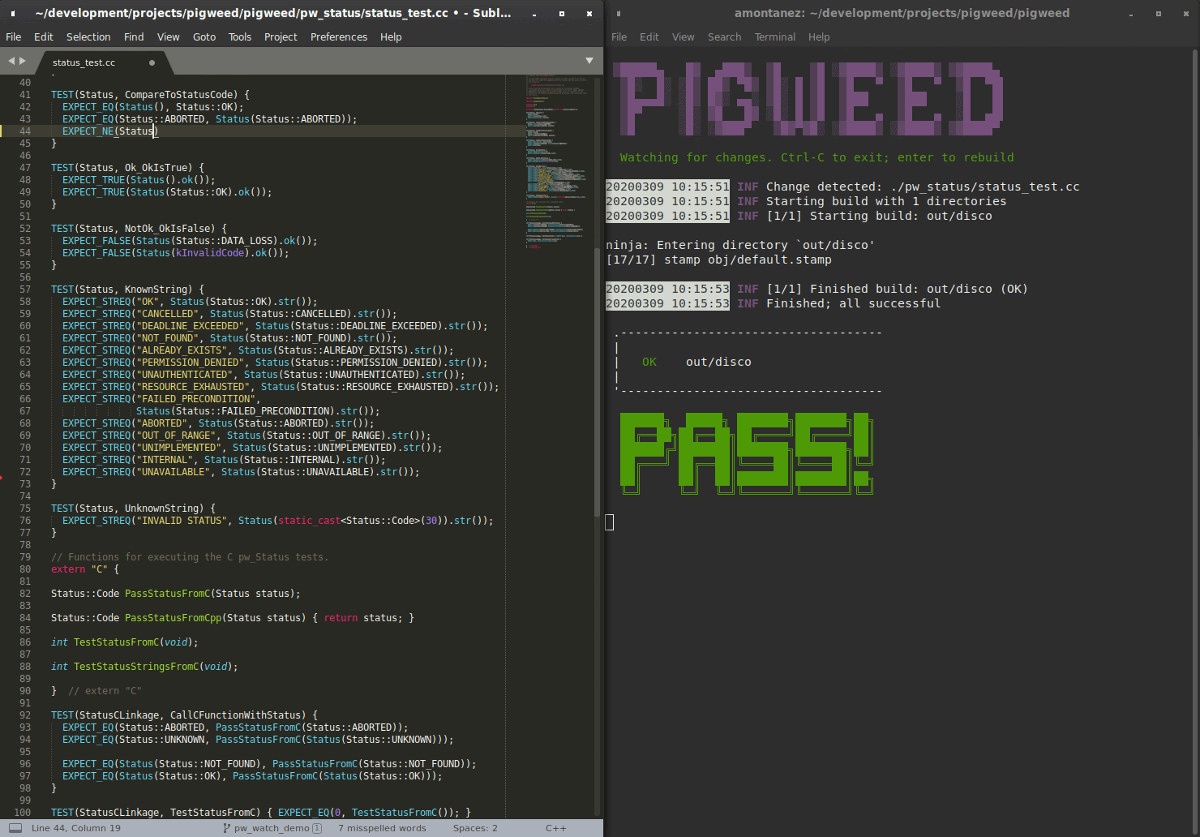Google Pigweed, a collection of open-source libraries for embedded software development, now supports the Raspberry Pi RP2350 MCU and comes as a software development kit (Google Pigweed SDK). These libraries, also called modules, are building blocks that make embedded software development faster and more reliable. It targets tiny 32-bit microcontrollers such as STMicro STM32L452, Nordic Semi nRF52832, and the Raspberry Pi Pico line of microcontrollers. The library components have shipped in Google Pixels, Nest thermostats, robots, satellites, and drones. On August 8, the Pigweed project was released as a software development kit (SDK) in developer preview with official support for Raspberry Pi RP2350 and the associated Pico 2 development board. The new release uses the Bazel build system – a feature upstreamed into the Pico SDK by the Google Pigweed team – and a complete, open-source Clang/LLVM toolchain. The Google Pigweed SDK includes sample code, modules, and a comprehensive tutorial […]
Polos CH32Vxx 32-bit RISC-V MCU boards starts at $1.99
XPU Labs, a subsidiary of AnalogLamb, has designed three inexpensive “Polos” development boards based on WCH CH32VXX RISC-V microcontrollers with pricing starting at just $1.99. The three development/breakout boards have the same form factor and only differ in the specific RISC-V MCU used with three parts selected: the 48 MHz CH32V003F4U6 microcontroller, the 144 MHz CH32V203F8P6 MCU, and the CH32V305FBP6 that’s similar to the former but add more memory (32KB) and flash (128KB). You can see also three boards side-by-side in the photo below along with the Amnos LinkE CH32Vxx debugger & programmer board. Polos CH32V003 Breakout Alef specifications: MCU – WCH CH32V003F4U6 QingKe 32-bit RISC-V2A microcontroller up to 48MHz with 2KB SRAM, 16KB Flash (QFN20 Package) USB – 1x Micro USB port I/Os – 2x 12-pin headers with Up to 18 GPIOs with external interrupt support 1x USART, 1x I2C, 1x SPI 10-bit ADC Debugging – 1-wire serial debug […]
Cologne GateMate A1 FPGA chip with 20,480 LE is programmable with an open-source toolchain
Cologne Chip GateMate A1 is an FPGA with 20,480 logic elements best suited for lower-power applications and programmable with an open-source toolchain based on nMigen, Yosys, and other open-source tools. The A1 FPGA also comes with 1,280 Kbit block SRAM, four PLLs, a quad SPI interface up to 100 MHz, a 5Gbps SerDes interface, and the company offers an evaluation board to get started with development. GateMate A1 specifications: CPE Architecture 20,480 programmable elements (CPE) for combinatorial and sequential logic 40,960 Latches / Flip-Flops within programmable elements CPE consists of LUT-tree with 8 inputs Each CPE is configurable as a 2-bit full-adder or 2×2-bit multipliers Features 4x programmable PLLs quad SPI interface up to 100 MHz 1,280 Kbit dual-ported block RAM with variable data widths in 32 x 40 Kbit RAM cells Multipliers with arbitrary size implementable in CPE array Multiple clocking schemas All 162 GPIOs are configurable as single-ended […]
CH32V003 RISC-V MCU gets $1.5 development board, open source GCC toolchain and flasher utility
When we first wrote about the 10-cent CH32V003 RISC-V MCU it was offered in a $7 development board and the closed-source MounRiver Studio IDE had to be used for programming. But things have improved since October 2022, and now, you can buy a CH32V003 board for as little as $1.5 plus shipping, and an open-source GCC toolchain and flasher/downloader are now available. Let’s have a look at the hardware first with the low-cost nanoCH32V003 development board featuring a 48 MHz CH32V003 RISC-V microcontroller with 2KB SRAM and 16KB flash, a USB Type-C port for power, a reset button, and two rows of headers for the GPIOs. MuseLab nanoCH32V003 specifications: MCU – WCH CH32V003F4U6 32-bit RISC-V2A microcontroller up to 48 MHz with 2KB SRAM, 16KB flash (QFN20 package) Expansion – 2x 11-pin headers with up to 18x GPIOs, 1x USART, 1x I2C, 1x SPI, 8-channel 10-bit ADC, 5V, 3.3V, GND Debugging […]
RISC-V hardware & software ecosystem highlights in 2020
The RISC-V Summit 2020 is currently taking place virtually, and RISC-V International, a non-profit corporation aiming to drive the adoption and implementation of the RISC-V instruction set architecture (ISA), took the occasion to remind us of the growth of the ISA both in terms of commercial adaption, education, and other projects. Calista Redmond, CEO of RISC-V International, detailed the growth in memberships: This year, our technical community has grown 66 percent to more than 2,300 individuals in our more than 50 technical and special interest groups. We’re seeing increased market momentum of RISC-V cores, SoCs, developer boards, software and tools across computing from embedded to enterprise … We’re proud of our growing global membership, which has more than doubled in the last year to 1,000 total members, including 222 organizations.” RISC-V also launched the RISC-V Exchange now listing over 124 RISC-V cores, SoCs, and developer boards, as well as 129 […]
Google Pigweed Libraries Streamline Embedded Software Development on 32-bit Microcontrollers
There are many components required for embedded software development, including cross-toolchain, a build system like buildroot or YoCto Project, and debugging tools like OpenOCD. Once you’ve installed those, development involving several steps including building the code, flashing it to the board, and then running the program on the target. Google would like to make embedded software development to be as easy as web development as possible, similar to editing a file and running it in a web browser, so they’ve just released Pigweed open-source collection of embedded-targeted libraries/modules to streamline the development process for 32-bit microcontrollers such as STMicro STM32L452 or Nordic Semi nRF52832. Pigweed aims to help all steps of the process including tools/environment setup, program development, and code submission. Setup consists of running a bootstrap script that will automatically install tools such as Python 3.8, clang-format, and an Arm compiler in a virtual environment in order to leave […]
How to Sandbox an arm64 GCC on aarch64 Hardware with armv7 Userspace
CNXSoft: Guest post by Blu about setting up arm64 toolchain on 64-bit Arm hardware running a 32-bit Arm (Armv7) rootfs. Life is short and industry progress is never fast enough in areas we care about. That’s an observation most of us are familiar with. One would think that by now most aarch64 desktops would be running arm64 environments, with multi-arch support when needed. Alas, as of late 2019, chromeOS on aarch64 is still shipping an aarch64 kernel and an armhf userspace. And despite the fine job by the good folks at chromebrew, an aarch64 chromeOS machine in dev mode ‒ an otherwise excellent road-warrior ride, is stuck with 32-bit armhf. Is that a problem, some may ask? Yes, it is ‒ aarch64 is the objectively better arm ISA outside of MCUs, from gen-purpose code to all kinds of ISA extensions, SIMD in particular. That shows in contemporary compiler support and […]
Linaro Connect San Diego 2019 Schedule – IoT, AI, Optimizations, Compilers and More
Linaro has recently released the full schedule of Linaro Connect San Diego 2019 that will take place on September 23-27. Even if you can’t attend, it’s always interested to check out the schedule to find out what interesting work is done on Arm Linux, Zephyr OS, and so on. So I’ve created my own virtual schedule with some of the most relevant and interesting sessions of the five-day event. Monday, September 23 14:00 – 14:25 – SAN19-101 Thermal Governors: How to pick the right one by Keerthy Jagadeesh, Software Engineer, Texas Instruments With higher Gigahertz and multiple cores packed in a SoC the need for thermal management for Arm based SoCs gets more and more critical. Thermal governors that define the policy for thermal management play a pivotal role in ensuring thermal safety of the device. Choosing the right one ensures the device performs optimally with in the thermal budget. […]


